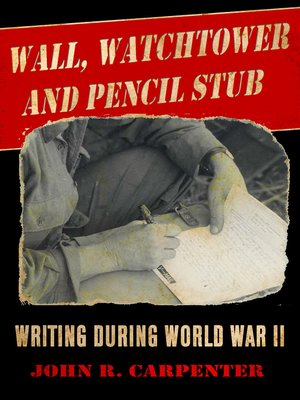
Sign up to save your library
With an OverDrive account, you can save your favorite libraries for at-a-glance information about availability. Find out more about OverDrive accounts.
Find this title in Libby, the library reading app by OverDrive.



Search for a digital library with this title
Title found at these libraries:
| Library Name | Distance |
|---|---|
| Loading... |
An exploration of the ways writers—from Samuel Beckett and Norman Mailer to anonymous individuals—used literature to remember and heal from World War II.
In Wall, Watchtower, and Pencil Stub, John R. Carpenter explores how literteray figures in the mid-twentieth-century, including Samuel Beckett, Richard Hillary, Norman Mailer, Albert Camus, Jean-Paul Sartre, and others, tried to communicate and process the horrors they experienced during World War II and its aftermath. Along with writers, anonymous civilians gave voice to experiences of occupation and imprisonment so that those who didn't survive would not be forgotten.
Wall, Watchtower, and Pencil Stub makes the case for the permanent centrality of World War II in our present-day culture, literature, and history. This is a "fascinating and engaging account . . . [that] touches on a wide variety of examples, from sophisticated literature to scrawled notes thrown by prisoners from trains" (Philip Fried).







